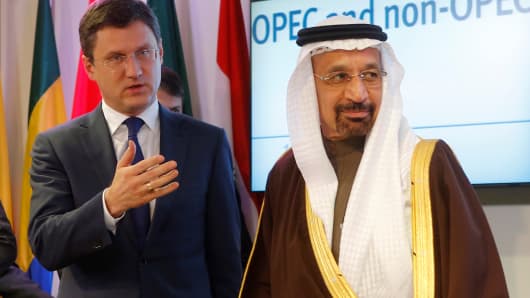The Russian energy minister said that sanctions imposed on his country are economic competition measures that impact negatively on its relations with certain countries.
Prices of oil and metals have leaped following U.S. sanctions on Russia, which has raised investor fears over the availability of supply.
Alexander Novak, the Russian energy minister, told CNBC's Steve Sedgwick in Jeddah Friday that every fresh sanction had an adverse effect.
"We can see non-economic measures of competition. Unfortunately, such tools are being used with an increased frequency and they represent a huge risk," he said on the sidelines of the OPEC and non-OPEC members meeting in Jeddah.
Oil prices have been rising over the past few months and on Thursday hit their highest levels since November 2014.

